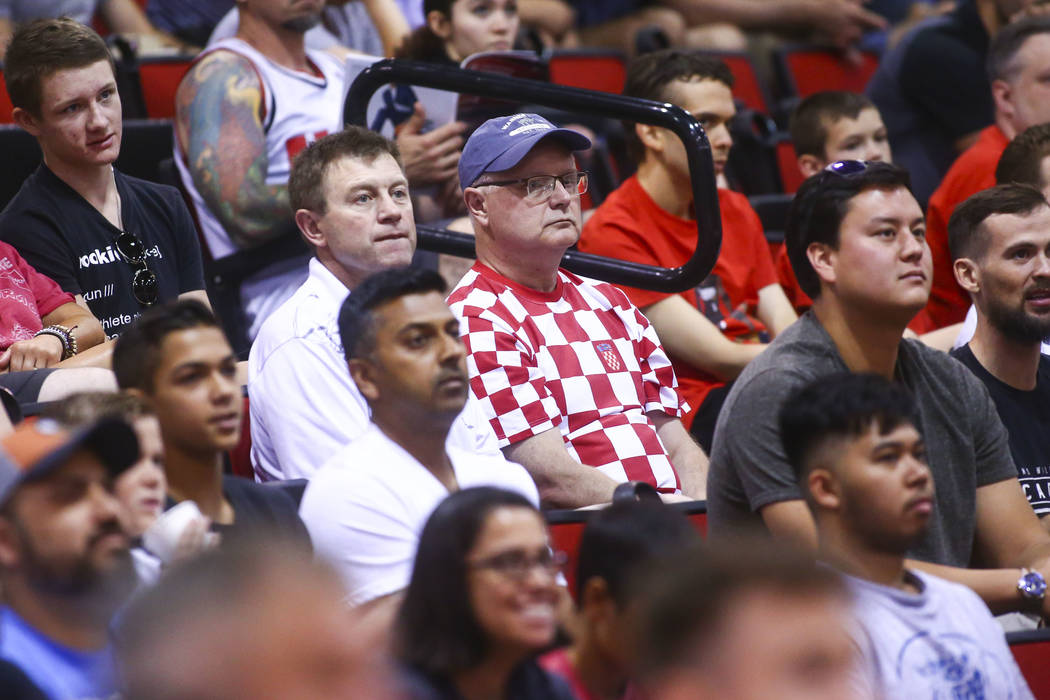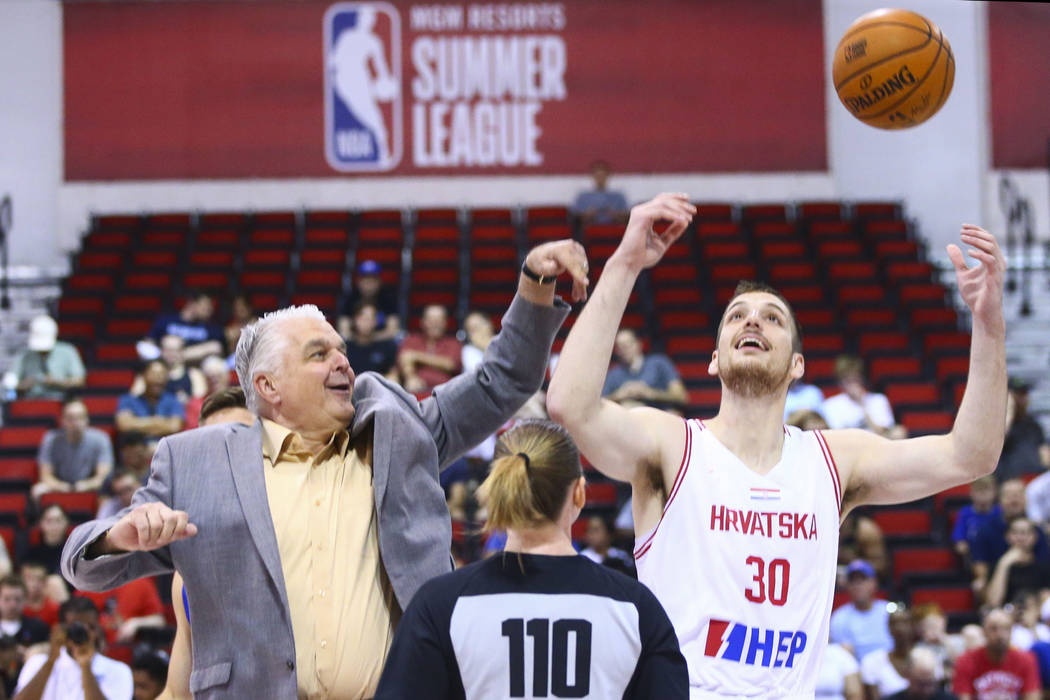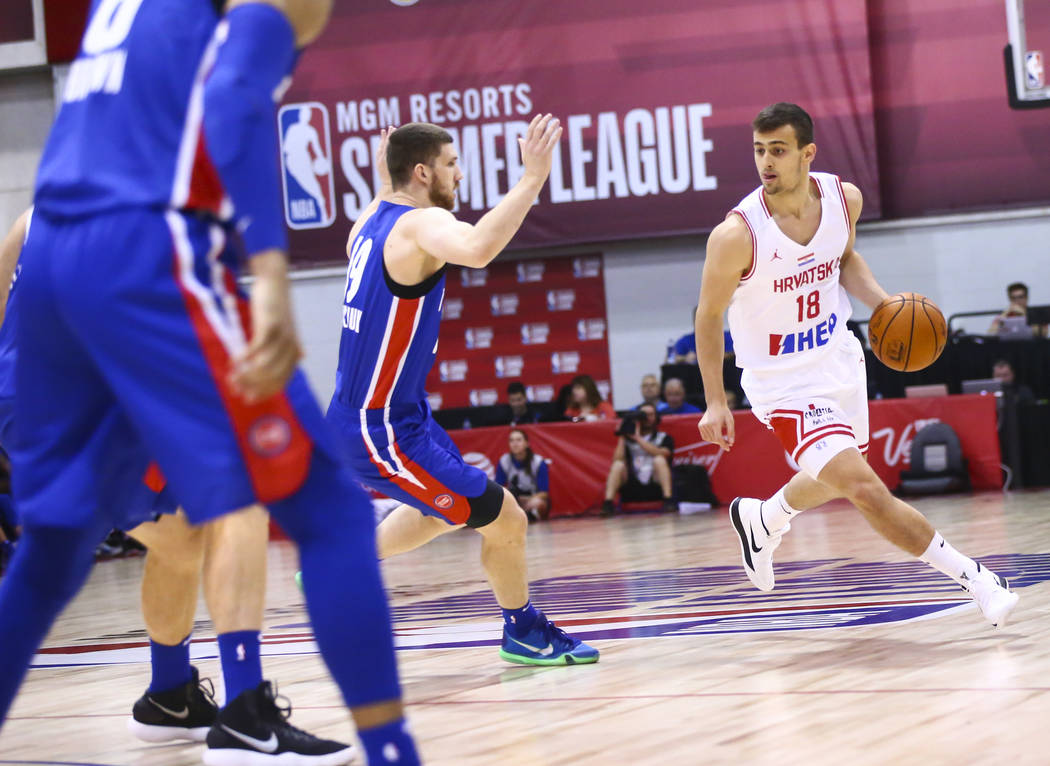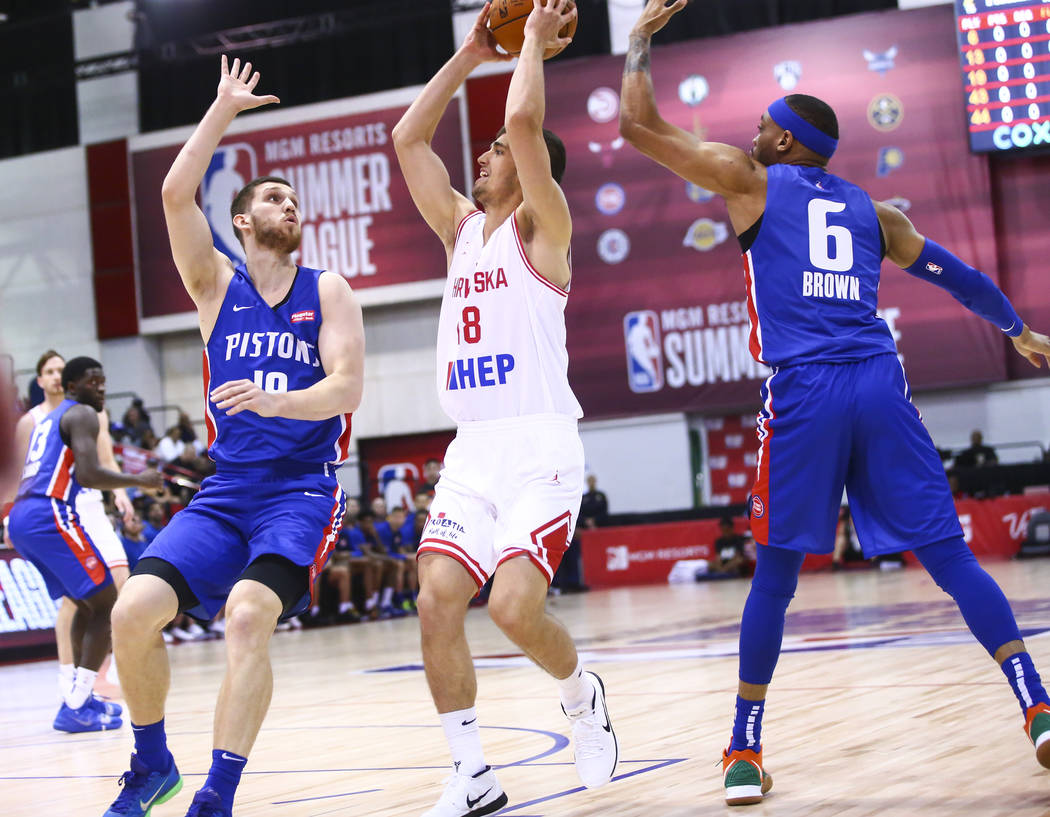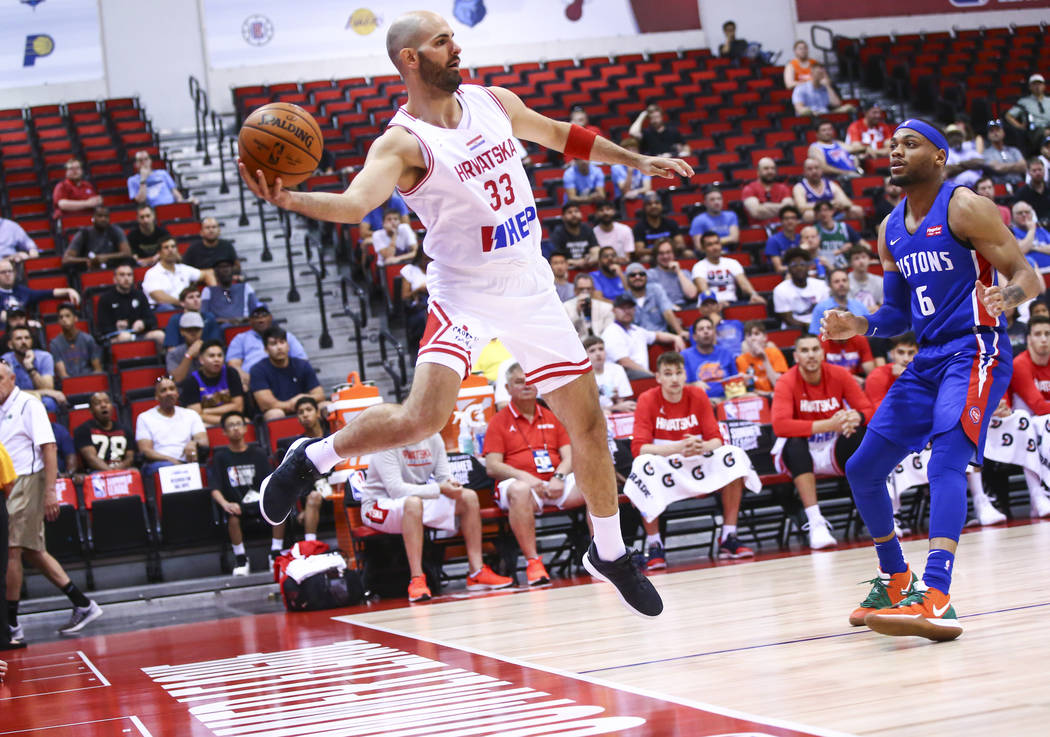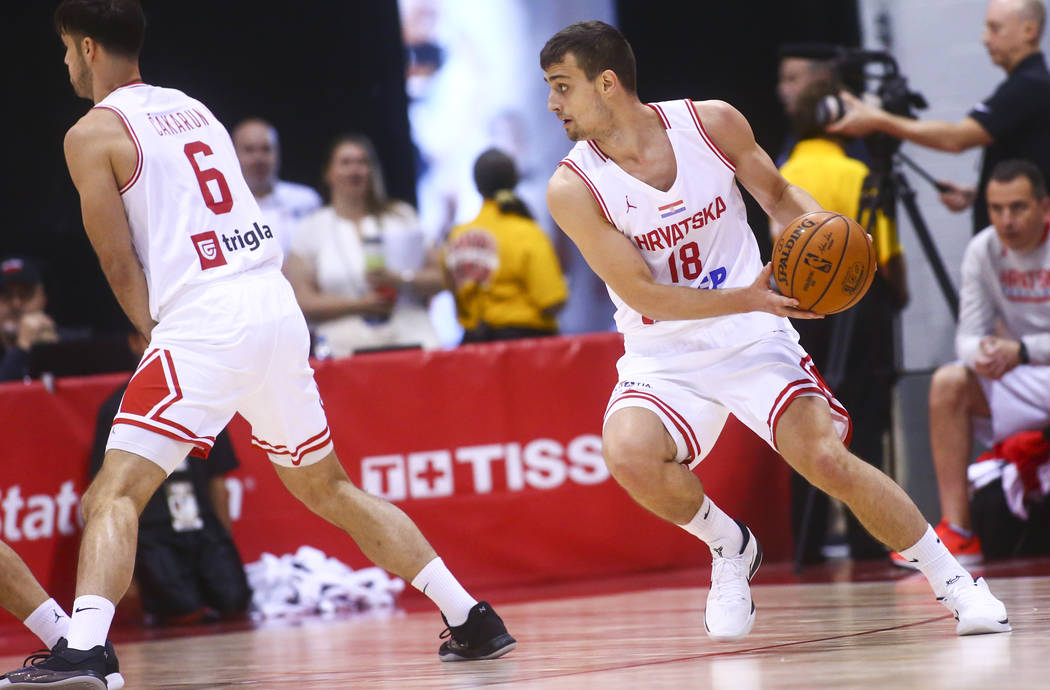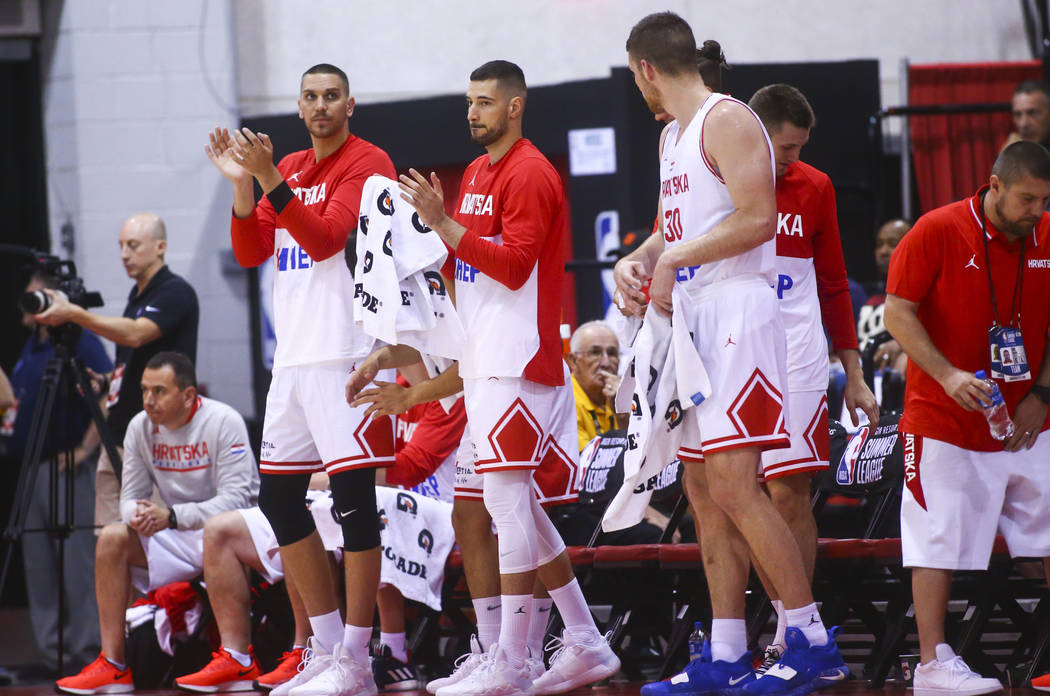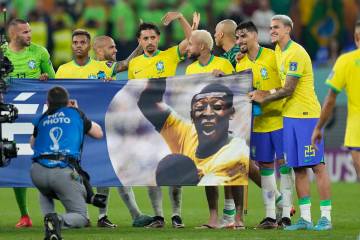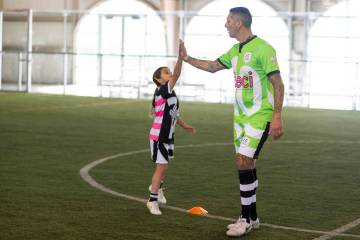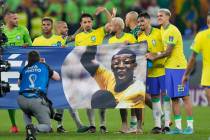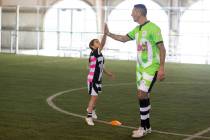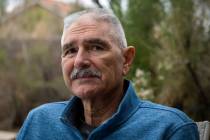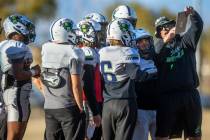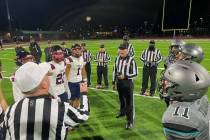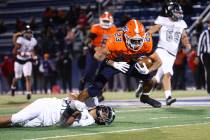NBA Summer League stage not too big for Croatia basketball team
About 30 minutes before Team Croatia was to tip off the Vegas Summer League against the wannabe Detroit Pistons Friday, a man wearing Croatia’s iconic red-and-white checkered soccer jersey and a companion were spotted taking seats a few rows behind the Croatia bench at Cox Pavilion.
They appeared excited to be there.
“When I see the red and white, my arm goes like this,” said Milan Grcevic in halting English while making the international sign for goose pimples.
Grcevic hails from Lika, which became a powder keg that helped tear apart the former Yugoslavia — and its vaunted national basketball team — during the 1990s. When a decade of unspeakable conflict that included genocide and other atrocities ensued, Toronto seemed a far better place to be.
With friend Nikola Cvitkovic alongside, Grcevic stood as the Croatian national anthem “Lijepa nasa Domovino” — “Our Beautiful Homeland” — was played. Everything’s calm back home now, he said. While what happened 30 years ago will never be forgotten, a sense of normalcy has returned to the region.
Even the national basketball side appears to be on the upswing.
Duking it out
Despite missing several players, including 6-foot-9-inch Luka Samanic, who is playing with the summertime Spurs after being selected 19th overall by San Antonio in the recent NBA draft, Team Croatia led the wannabe Pistons for a long time before losing, 96-80.
But there’s still work to be done before the team rekindles memories of the 1992 Croatia side that lost 117-85 to the USA Dream Team in the gold medal game at the Barcelona Olympics.
Playing under the Croatian flag for the first time, a team led by future NBA stars Drazen Petrovic, Toni Kukoc and Dino Radja led the omnipotent Americans for a brief spell. Had their former teammate Vlade Divac, a Serb, been allowed to play before the politics of the day interceded, it might have been even a tad more interesting.
Petrovic was a pure and fearless shooter, and most nights it didn’t matter who was guarding him.
“He had like 40 on Jordan (one night), and he was going at Jordan like, ‘Yo, it ain’t nothing. Give me the ball, I’m hot. I’m taking him,’” former NBA star Kenny Anderson said in the ESPN documentary “Once Brothers” about that star-crossed team.
A liaison was asked if anybody on the summer league squad could speak fluently of its influence and the long road back to respectability — Croatia has failed to quality for four of the past six FIBA World Cups and three of the past six Olympics.
He suggested the guy who recently finished up at Duke.
Peace and prosperity
“We mention them all the time, at practice, at dinners or whatever,” said center Antonio Vrankovic, who got into 49 games for Mike Krzyzewski’s Blue Devils during his four seasons. “They’re a big motivation for us, because they put our country on the map like no one else did before.”
Vrankovic’s father was part of the Croatian team that settled for silver. Stojko Vrankovic also played in the NBA, and is now the Croatian basketball federation president.
“War or no war, we’re a really proud country, and that (basketball success) gives another dimension of pride and respect we have for our country,” his affable son said Friday.
But can it be like 1992 again, before the atrocities and the sudden death of Petrovic at the height of his NBA career because of an auto accident combined to send basketball in the region skittering into a tailspin from which it has yet to fully emerge?
“When you put (the 1992 Yugoslavia team) together, you have some kind of basketball miracle,” historian Vjekoslav Perica said for a 2016 Vice.com report on the demise of basketball in the Balkan nations. “But when it’s linked to some particular moment in history, then I think it will remain history. It is impossible to be revived.”
But it is possible to feel a sense of place and renewal for what once was and perhaps can be again.
When Antonio Vrankovic was asked about the question he was asked most often by Duke teammates and classmates about Croatia, he said it wasn’t about the atrocities of civil war.
“The most common was ‘Where should I go in Croatia, where should I visit, I hear it’s a beautiful country,” he said with a smile that could light up a thousand Zagreb nights.
Contact Ron Kantowski at rkantowski@reviewjournal.com or 702-383-0352. Follow @ronkantowski on Twitter.



